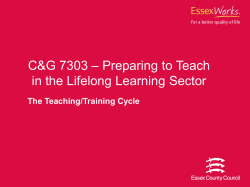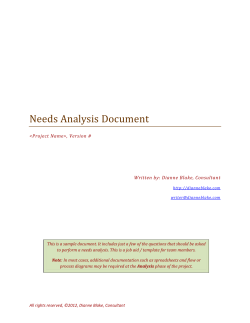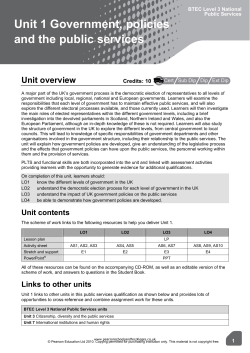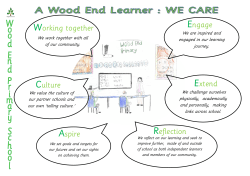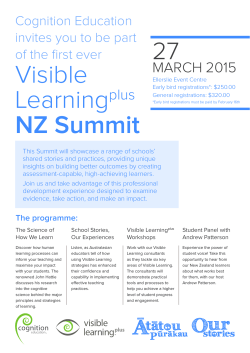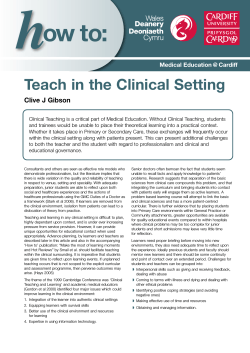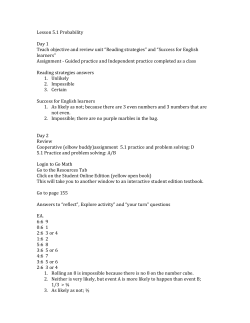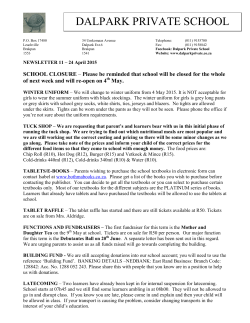
Teaching advanced research methods
The NCRM quick start guide to: Teaching advanced research methods Teaching advanced research methods presents a number of distinct pedagogic challenges - from diverse learner groups and the practicalities of handling data, to the challenge of structuring and sequencing course content within an intensive period. This guide is the result of NCRM research1 involving interviewing and observing teachers, learners and strategic developers of advanced competence in social science research methods. The guidance is based on evidence and collective wisdom pertaining to methods teaching specifically and it is intended to stimulate the development of good practice. Design for diverse learner groups NCRM short courses typically draw together doctoral and practising researchers from across disciplines and professional backgrounds. These learners bring to the course varied experiences, skills and expertise in any given method and consequently they will come to your training with different requirements. in advance Help prospective learners self-select onto a course which meets their needs and expectations by supplying a clear, concise, but detailed description of the course aims and content in all promotional materials. Be explicit about the level of experience and prior knowledge that is needed to take the course. Include your contact details, so potential learners can check specifics if needed. Request information about your learners’ knowledge, skills and expectations as part of the course registration or preparation. in class Design your session to account for variations in learners’ skills; plan contingencies and flexibility into the session. Establish levels of knowledge within the group early on. It may be a good investment of time to ask participants to introduce themselves, their relevant experience and/or what they want from the training. Be aware that learners’ ability to engage with material is not necessarily related to an existing skill level. It can be valuable to harness different levels of expertise through peer learning by planning activities that incorporate the experience and expertise in the group to benefit others, such as group work, class dialogue, and exercises to promote coteaching. Structure and sequence course content Short courses need careful and transparent structuring and sequencing to give learners confidence in the teaching process. This is important as time constraints can mean courses have to be fast-paced to cover sufficient material and new terminology, processes, technical information and other content may require intense concentration from course participants. in advance Manage time constraints. Encourage learners to view a course as one step in learning a method. Provide preparatory and follow up material around the session itself, for example enriching the available learning environment by embedding your session in a programme of experiences and developing the context within which you deliver your course. You might promote informal learning around the course and highlight wider learning communities and opportunities to extend student learning. Exposing students to aspects of methods culture can promote additional opportunities to develop skills and deepen knowledge of the methodologies in question. We need to recognise that a time-limited course may not be appropriate for teaching some methods and investigate alternatives. in class Sequence course content so that it is structured to retain learners’ interest by mixing up the format. Once learners have grasped the necessary conceptual/theoretical frame, they will often appreciate a move to group work and hands-on activities. Evaluate understanding throughout the course by asking questions, encouraging dialogue and being alert to learner body language. Teaching learners at different starting points can make it hard to decide how much background to deliver on a given topic. If you focus too heavily on basics then time for more valued advanced aspects can be lost. However, if you are using software, for example, time spent raising learners’ conceptual understanding can enrich hands-on experience and overall learning. You will need to manage in-class dialogue. Small-group learning is valued by learners, however, time constraints may affect how much this can be used. When encouraging questions, be aware that tangential discussions can waste valuable time – weigh the potential benefits of engaging learners in dialogue. Strategies to balance individual needs with those of the group include addressing questions when asked, or at a pre-planned stage in the teaching; using breaks to address individual questions and allowing Q&A time at the end of a course. Learners have suggested setting time aside for a 15-minute clinic with individuals wherein you can clarify or answer a host of questions. Promoting learning with data Using teacher’s data Practically, social research methods focus on the gathering/ generation, handling, analysis and reporting of data. Teachers, therefore, use data in multiple ways to engage participants and facilitate the learning. However, using data in methods teaching requires significant investments in terms of planning, class time, teaching support, and technical resources. In addition, using your own data, learners’ data and data generated in class each present particular challenges for teachers. Datasets that are real and known by the teacher can that provide a pedagogical hook for methods learners, whilst effectively targeting teaching goals. in class Consider using data early on in training to enable learners to better understand the inter-related nature of data, evidence and method. Teach about and through data. Prompt learners to (re)think what they are doing to apply the learning in the short course to their own research perhaps via interaction with their data. Activities to generate data can include course participants interviewing each other, conducting focus groups, observations or limited field activities and then working with that data. This can be risky however, as results can be of variable quality and more, or less, usable. in advance Consider developing a teaching dataset for use in courses; this can ensure the dataset is manageably small, interesting, fun and free of ethical difficulties and distractions. When teaching quantitative methods, consider whether the teaching dataset needs to be cleaned in advance; the process of cleaning a dataset can be a relevant activity for less advanced learners. in class Real-world data connects with learners; supply data that participants can relate to and that excites them; this may stimulate opportunities to create new knowledge. However, whilst, authentic datasets resonate with learners, non-real data also has its place, as learners may feel freer to experiment. Fun or frivolous data can be used to enable purposeful play or illustrate particular points. Consider which approach will suit your content best. Learners using their own data Learner data is relevant and authentic and for this reason, using learners’ data may often be perceived as good practice. However, the practicalities of course participants using their own data in the classroom can make this untenable. Technical problems can mean that significant time can be lost installing software and troubleshooting. As a teacher, you may then be required to orientate yourself swiftly within a multitude of research projects before you can understand and advise on their data. Therefore, you will need strategies for managing this approach. References 1. Kilburn, D., Nind, M., and Wiles, R., (2014) Short courses in advanced research methods: Challenges and opportunities for teaching and learning. NCRM: University of Southampton. http://eprints.ncrm.ac.uk/3601/ in advance Request the data ahead of the session and be selective about what will work. Data may also have ethical protections that prevent or limit sharing, so you may need contingency data. Ensure the dataset is cleaned in readiness. Consider offering separate data sharing workshops prepared specifically for working with learner data, with more time and different expectations than the short course about the method. in class Resource your session with intensive staffing and technical support to ensure technical glitches do not derail teaching. Further guides in this series are in production: look out for them on the NCRM website. As part of current research on The Pedagogy of Methodological Research (see http://pedagogy.ncrm.ac.uk/) we also appreciate feedback to inform future work. National Centre for Research Methods Social Sciences University of Southampton Southampton SO17 1BJ United Kingdom Web Email Tel Twitter http://www.ncrm.ac.uk info@ncrm.ac.uk +44 23 8059 4539 @NCRMUK
© Copyright 2025
